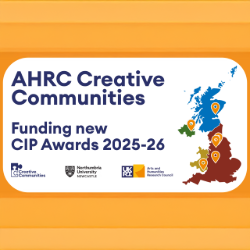-
Study
-
Undergraduate
- UCAS Clearing & Confirmation 2025
- Application Guides
- UCAS Exhibitions
- Extended Degrees
- School & College Outreach
- Information for Parents
-
Postgraduate
- Application Guide
- Postgraduate Research Degrees
- Flexible Learning
- Change Direction
- Register your Interest
-
Student Life
- Students' Union
- The Hub - Student Blog
- Accommodation
- Northumbria Sport
- Support for Students
-
Learning Experience
- Real-World Learning
- Research-enriched learning
- Graduate Futures
- The Business Clinic
- Study Abroad
-
-
International
International
Northumbria’s global footprint touches every continent across the world, through our global partnerships across 17 institutions in 10 countries, to our 277,000 strong alumni community and 150 recruitment partners – we prepare our students for the challenges of tomorrow. Discover more about how to join Northumbria’s global family or our partnerships.
View our Global Footprint-
Quick Links
- Course Search
- Undergraduate Study
- Postgraduate Study
- Information for Parents
- London Campus
- Northumbria Pathway
- Cost of Living
- Sign up for Information
-
International Students
- Information for International Students
- International Events
- Application Guide
- Entry Requirements and Education Country Agents
- Global Offices
- English Requirements
- English Language Centre
- International student support
- Cost of Living
-
International Fees and Funding
- International Undergraduate Fees
- International Undergraduate Funding
- International Masters Fees
- International Masters Funding
- International Postgraduate Research Fees
- International Postgraduate Research Funding
-
International Partners
- Agent and Representatives Network
- Global Partnerships
- Global Community
-
International Mobility
- Study Abroad
- Information for Incoming Exchange Students
-
-
Business
Business
The world is changing faster than ever before. The future is there to be won by organisations who find ways to turn today's possibilities into tomorrows competitive edge. In a connected world, collaboration can be the key to success.
More on our Business Services -
Research
Research
Northumbria is a research-rich, business-focused, professional university with a global reputation for academic quality. We conduct ground-breaking research that is responsive to the science & technology, health & well being, economic and social and arts & cultural needs for the communities
Discover more about our Research-
Quick Links
- Research Peaks of Excellence
- Academic Departments
- Research Staff
- Postgraduate Research Studentships
- Research Events
-
Research at Northumbria
- Interdisciplinary Research Themes
- Research Impact
- REF
- Partners and Collaborators
-
Support for Researchers
- Research and Innovation Services Staff
- Researcher Development and Training
- Ethics, Integrity, and Trusted Research
- University Library
- Vice Chancellors Fellows
-
Research Degrees
- Postgraduate Research Overview
- Doctoral Training Partnerships and Centres
- Academic Departments
-
Research Culture
- Research Culture
- Research Culture Action Plan
- Concordats and Commitments
-
-
About Us
-
About Northumbria
- Our Strategy
- Our Staff
- Our Schools
- Place and Partnerships
- Leadership & Governance
- University Services
- History of Northumbria
- Contact us
- Online Shop
-
-
Alumni
Alumni
Northumbria University is renowned for the calibre of its business-ready graduates. Our alumni network has over 250,000 graduates based in 178 countries worldwide in a range of sectors, our alumni are making a real impact on the world.
Our Alumni - Work For Us
What will I learn on this module?
This module will introduce students to experimental filmmaking and encourage them to explore modes of creativity beyond the mainstream. It will provide critical overviews of selected experimental filmmakers and movements and encourage students to combine practice and theory through critical evaluation of their own productions. The module will alternate critical and historical sessions with practical sessions that will encourage students to produce critically informed work that challenges prevailing conventions. Students will also explore different types of experimentation and interrogate the boundaries between experimental and mainstream film.
How will I learn on this module?
The module is taught via a lecture (two hours) and associated seminar/workshops (one hour) and peer learning sessions (one hour). The lectures will introduce students to key historical and conceptual issues, and relevant film examples. Seminar/workshop activities will strengthen student knowledge and critical and analytical reflection upon the issues under discussion. Peer learnings will be geared towards be geared to focus on developing practical work and to partake in film analysis (whereas seminars will be mostly aimed towards discussion of theoretical/conceptual elements). Finally, tutorials support students with specific issues, not least concerning assessment. Students are required to make positive contributions to the learning experience. Each week, students will be required to watch a relevant film that will provide a case-study for that week’s lecture and seminar. They are also expected to prepare for each seminar by undertaking the weekly required reading, made available via the e-learning portal. They are also encouraged to develop communication and teamwork skills by taking an active part in group seminar tasks.
How will I be supported academically on this module?
The module combines critical and historical analysis with practical elements. As such, the teaching will combine critical lectures, critical seminars, and practice-oriented workshops. The critical elements provide conceptual tools and historical awareness of experimental film and should feed into the practical components. Class material (such as Powerpoint slides, links to film clips and discussion points) will be accessible via Blackboard, along with weekly essential and further reading material (see the Learning Resources and Activities folder to access all this material, organised by week). The electronic reading list will link you directly to key sources, allowing you to access them anytime and anywhere.
What will I be expected to read on this module?
All modules at Northumbria include a range of reading materials that students are expected to engage with. Online reading lists (provided after enrolment) give you access to your reading material for your modules. The Library works in partnership with your module tutors to ensure you have access to the material that you need.
What will I be expected to achieve?
Knowledge and Understanding:
• Demonstrate awareness of a range of experimental filmmakers and the conceptual ideas underpinning their work
• Understand key theoretical and critical approaches to experimental filmmaking
Intellectual/Professional Skills and Abilities:
• Create a film linked to specific conceptual and aesthetic traditions within experimental filmmaking
• Critically interrogate experimental filmmaking through engagement with academic work on experimental film
Personal Values Attributes (Global / Cultural awareness, Ethics, Curiosity) (PVA):
• Question prevailing filmmaking norms and explore aesthetic avenues beyond mainstream conventions
How will I be assessed?
FORMATIVE ASSESSMENT: To prepare you successfully to undertake the summative assessment(s) on this module, formative assessments will be set by the module team. These may take the form of in-class tasks or projects, developmental activities undertaken between classes, or learning exercises/activities set over a longer period. Feedback (written and/or oral) will be provided to help you learn from, reflect on, and develop in light of these formative assessments.
SUMMATIVE ASSESSMENT: Assessment will be a 90-second film with an accompanying critical reflection of 1000 words.
The assessment will map against all the MLOs. Written feedback will be provided to students via Turnitin.
Pre-requisite(s)
N/A
Co-requisite(s)
N/A
Module abstract
Experimental Film will introduce students to modes of filmmaking that fall outside of the mainstream and which experiment with the possibilities of film as a medium. The module blends practical and theoretical components: you will gain an understanding of various filmmakers and movements that have informed various traditions of experimental filmmaking and an insight into the underlying conceptual motivations that drive experimental filmmakers. You will be introduced to avant-garde filmmaking and artists’ filmmaking, but you will also learn about how elements of avant-garde filmmaking have fed into more commercial areas, including music videos, advertising, as well as commercial feature films. You will create a short film that relates to an area of experimental filmmaking and reflect on your work critically through a short, reflective essay
Course info
UCAS Code P315
Credits 20
Level of Study Undergraduate
Mode of Study 3 years Full Time or 4 years with a placement (sandwich)/study abroad
Department Northumbria School of Design, Arts and Creative Industries, Arts
Location City Campus, Northumbria University
City Newcastle
Start September 2026
All information is accurate at the time of sharing.
Full time Courses are primarily delivered via on-campus face to face learning but could include elements of online learning. Most courses run as planned and as promoted on our website and via our marketing materials, but if there are any substantial changes (as determined by the Competition and Markets Authority) to a course or there is the potential that course may be withdrawn, we will notify all affected applicants as soon as possible with advice and guidance regarding their options. It is also important to be aware that optional modules listed on course pages may be subject to change depending on uptake numbers each year.
Contact time is subject to increase or decrease in line with possible restrictions imposed by the government or the University in the interest of maintaining the health and safety and wellbeing of students, staff, and visitors if this is deemed necessary in future.
Useful Links
Find out about our distinctive approach at
www.northumbria.ac.uk/exp
Admissions Terms and Conditions
northumbria.ac.uk/terms
Fees and Funding
northumbria.ac.uk/fees
Admissions Policy
northumbria.ac.uk/adpolicy
Admissions Complaints Policy
northumbria.ac.uk/complaints









